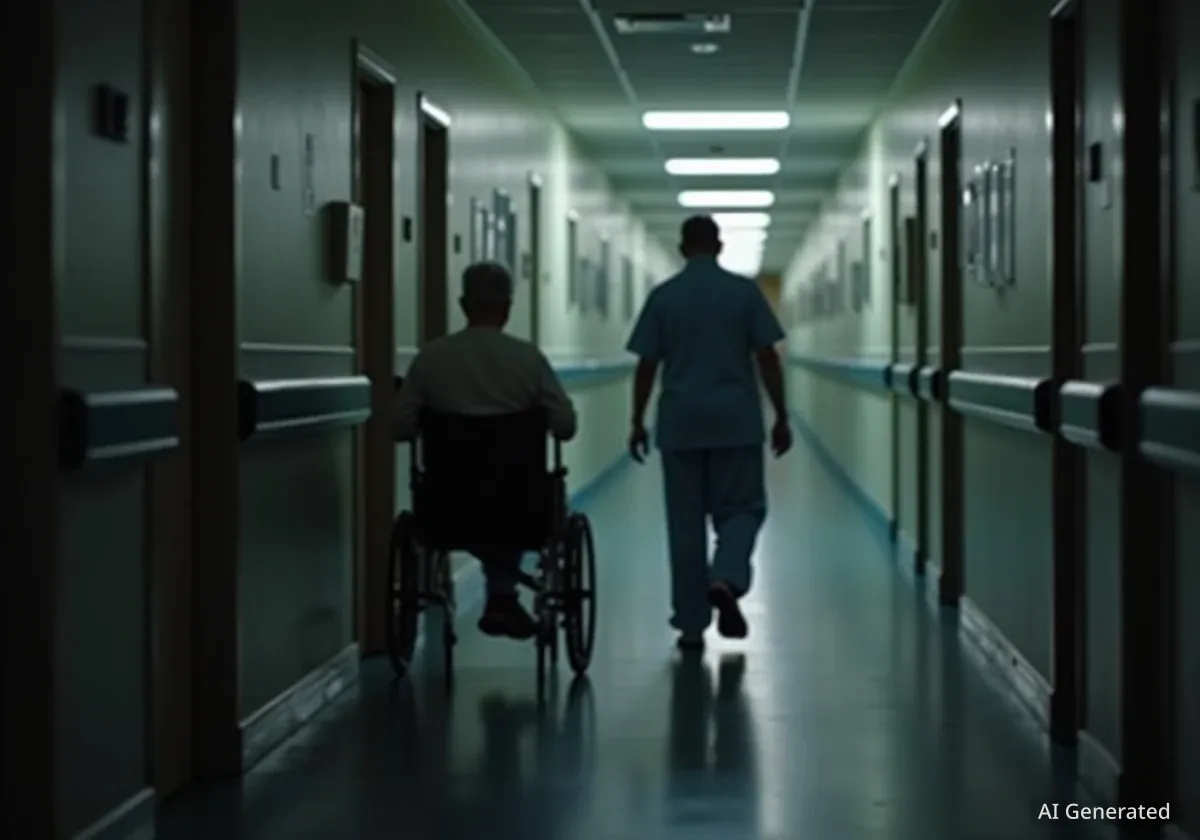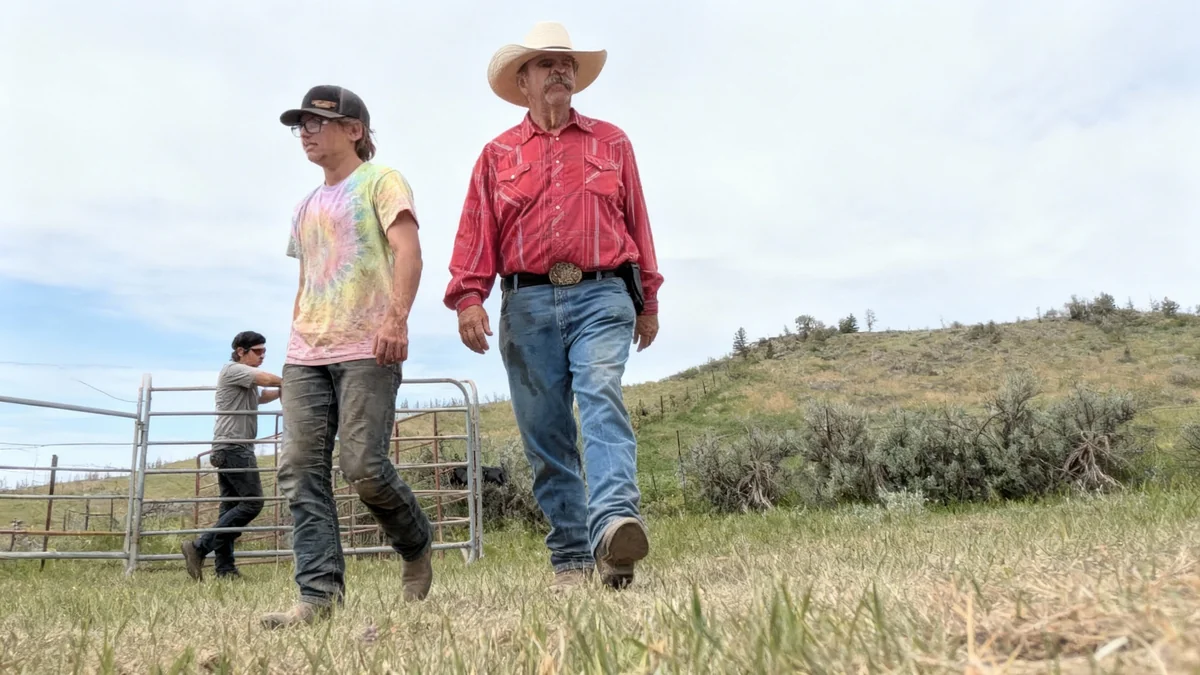Residents and administrators of Colorado nursing homes are expressing significant concern over proposed federal cuts to Medicaid. During a recent visit to a facility in Lakewood, Senator John Hickenlooper heard directly from individuals who fear losing essential care and housing if the funding reductions are enacted.
The proposed cuts, amounting to nearly a trillion dollars at the federal level, coincide with a substantial budget shortfall in Colorado, creating a dual financial pressure on the state's healthcare system for low-income and elderly populations.
Key Takeaways
- Nursing home residents in Colorado are worried that proposed federal Medicaid cuts will jeopardize their care, housing, and access to medication.
- A tax and spending bill passed by Congress includes nearly a trillion-dollar reduction in Medicaid funding, which covers most residents in skilled nursing facilities.
- Colorado is simultaneously facing its own budget shortfall, limiting the state's ability to cover the gap left by federal cuts.
- Healthcare advocates warn that funding reductions could lead to staff shortages, reduced services, and even the closure of some nursing facilities, particularly in rural areas.
Personal Stories Highlight Dependence on Medicaid
At the WestLake Care Community, a skilled nursing facility in Lakewood, residents shared their anxieties with Senator Hickenlooper. For many, Medicaid is not just a benefit but a lifeline that covers daily living expenses, medical care, and prescription drugs.
Michael Murphy, a 68-year-old resident who goes by "Murph," explained that the program was critical for his survival. Murphy, who has epilepsy, stated that his Social Security income alone is not enough to cover basic living costs.
"I'd still be out on the street if it wasn't for that," Murphy said. "My Social Security is not enough to live on at this point in time... I gotta have that help. I just have to, and I know I'm not alone."
Another resident, Jamie Van Holland, echoed these concerns. As a diabetic requiring multiple medications, she relies on Medicaid to cover her medical needs, food, and other essentials. She noted that nearly all of the more than 65 residents at WestLake are enrolled in the program.
Van Holland also expressed worry that funding cuts would inevitably lead to staffing reductions at the facility. "So it hits us in all kinds of ways," she remarked, highlighting the cascading effect of financial shortfalls on the quality of care.
A Dual Financial Challenge for Colorado
The concerns of nursing home residents are amplified by the scale of the proposed changes. The federal tax and spending bill includes a reduction to Medicaid approaching one trillion dollars. This federal action comes as Colorado grapples with its own financial difficulties, including a projected $1 billion budget shortfall for the upcoming year.
Medicaid in Colorado
According to reports, funding for health coverage for over 400,000 Coloradans will be affected by cuts to hospital provider fees. Additionally, a similar number of individuals will face new eligibility rules, including work requirements, which are expected to result in many losing their coverage.
This combination of federal cuts and state-level deficits makes it incredibly challenging for Colorado to absorb the financial shock. State officials will be forced to make difficult decisions about how to allocate diminished resources, with long-term care facilities being particularly vulnerable.
Doug Farmer, President and CEO of the Colorado Health Care Association, which represents nursing homes, warned of severe consequences. "If there were any meaningful cuts to Medicaid from where we are right now, we would start to see nursing homes go out of business and close," he stated, adding that rural and smaller facilities would likely be the first to fail.
Political Response and System-Wide Anxiety
During his visit, Senator Hickenlooper acknowledged the widespread fear among his constituents. He reported that his office has been inundated with calls and emails from Medicaid enrollees and older residents who are uncertain about their future.
"They're worried they're gonna end with no place, no bed. They're gonna end up homeless out on the street," Hickenlooper said. He suggested that the full consequences of the cuts may not have been understood by the lawmakers who passed the bill.
The Justification for Cuts
Proponents of the spending reductions have argued that they are necessary to address waste, fraud, and abuse within federal health programs. Republican lawmakers, such as Representative Gabe Evans, have suggested that Medicaid can be made more efficient without harming "lawful beneficiaries."
However, healthcare providers and advocates argue that the system is too interconnected and fragile to withstand such deep cuts. Chris Lynn, president of the Senior Resource Center, noted that the anxiety itself is having a negative impact on seniors' health.
"We're really concerned about the fear level that people have right now, and it's causing them just so much angst," Lynn said. "We're seeing that their health is deteriorating because of it."
The Ripple Effect on the Broader Healthcare System
The potential impact of Medicaid cuts extends beyond nursing homes. The program is crucial for transitioning patients with advanced illnesses from hospitals to long-term care settings. Without adequate funding, these individuals may have nowhere to go.
Leslie Kalechman, a retired social worker and volunteer with AARP, explained the critical role Medicaid plays in this process. Without it, sick or frail individuals could end up in homeless shelters or on the street.
This scenario creates a more expensive problem for the entire system. "If acutely or chronically ill, older or frail people don’t get health care in a timely way, they risk ending up back in the emergency department, which is far more expensive," Kalechman noted. She referred to the non-financial cost as the "misery factor."
While most of the significant cuts are scheduled to take effect at the beginning of 2027, the uncertainty is already causing distress. Industry leaders and residents are now in a difficult waiting period, bracing for a tidal wave of changes without a clear understanding of what state-level reductions will look like.
As Doug Farmer summarized the situation, "What you're experiencing right now is just a lot of anxiety from people, waiting to see what actually will happen when and how it will present itself, and then how we will react."





